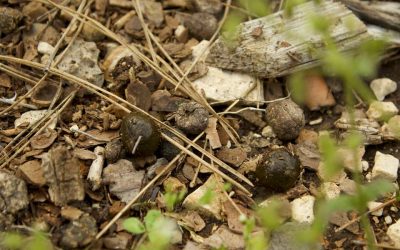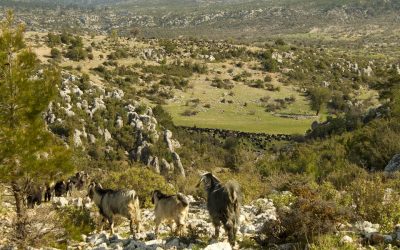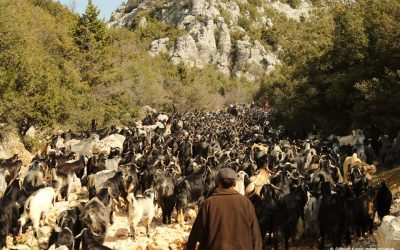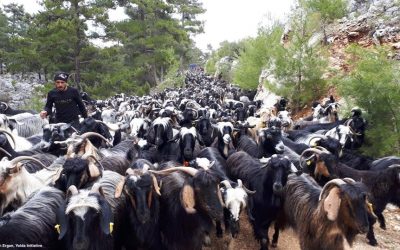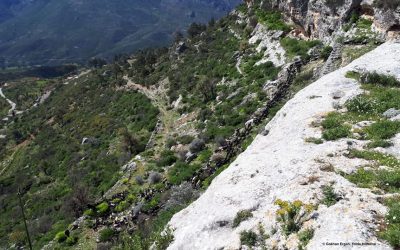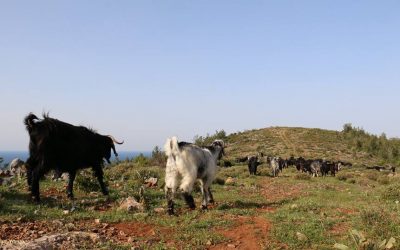Mobile Pastoralism has Direct Benefits for Water Cycle Regulation (Day 7)
While a large water footprint is attributed to industrial livestock systems, the footprint of mobile pastoralists can be considered nil as their use of blue water (i.e. water extracted from streams or reservoirs) is minimal, and their use of green water (i.e. rainwater) has no impact on the general availability of water given the herds’ reliance on natural vegetation. Most importantly, the benefits mobile pastoralists bring to soil structure have a direct benefit in water storage capacity and in regulating the water cycle. Additionally, traditional water infrastructures maintained by mobile pastoralists are crucial for sustaining the populations of many amphibian species – having direct impact on biodiversity.
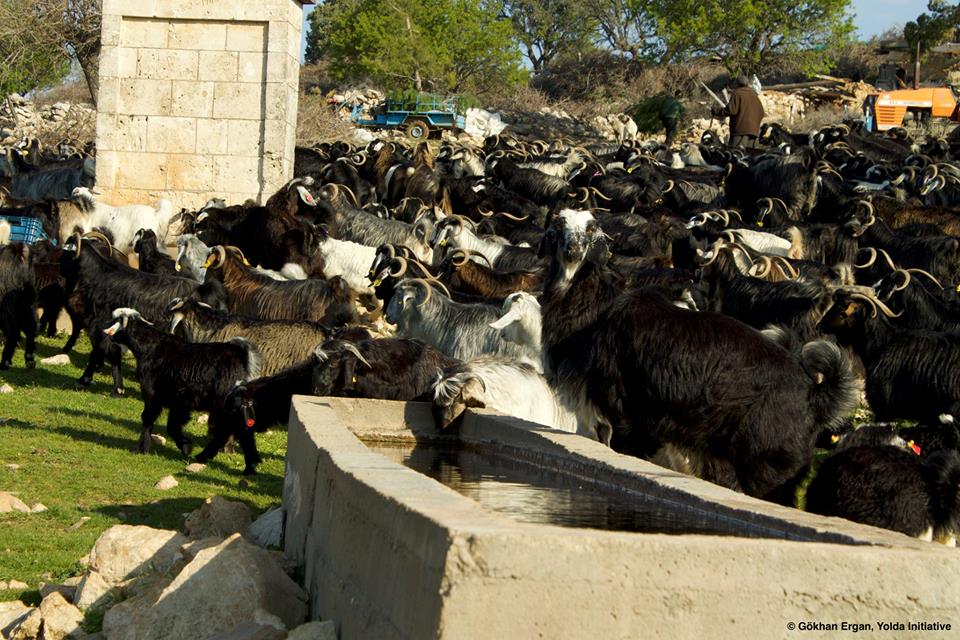
Read our stories from partners and practitioners.
Read our stories from partners and practitioners.
The Mobility of Pastoralists Contributes to Seed Dispersal (Day 10)
Based on the needs of the herd, the geographic conditions in each landscape, and the day they wake up to, The Bacak family decide when to move fast or slow or to rest. On the 10th Day, they cover a distance of 73km. Both the family and herd enjoy tasting the different...
Migration is a School for Mobile Pastoralist Children (Day 8)
The spring migration taking place between April & June, and the fall migration taking place between September & October, coincides with school calendar and mobile pastoralists find themselves forced to leave their children with settled relatives or in dormitories....
Mobile Pastoralism Protects the Soil (Day 6)
Day 6 sees the herd and pastoralists cover 47km as they climb up to an altitude of 1227 meters. The seasonal mobility of animals means they leave the pastures just in time to allow vegetation to recover. Livestock grazing is an effective tool for soil stability,...
Mobile Pastoralism has an Indespendible Role against Wildfires (Day 5)
On the fourth day of the migration the herd moved 24km along corridors that were created by the movement of their ancestors through forests for thousands of years. Today the Bacak family of Sarıkeçili nomadic pastoralists decide not to move in order to rest their...
Mobile Pastoralism and Nature (Day 4)
Mobile pastoralism has persisted over the centuries thanks to its harmonious existence with nature. Relying on a constant interaction and interdependency with the nature has led practitioners to cultivate a rich body of traditional ecological knowledge, which in turn...
Mobile Pastoralism is the most Efficient Livestock Farming System (Day 3)
3 days into the migration and the herd has moved 22km - from and altitude of 230 meters to one of 790 meters. As they climb, both the herd's and the Bacak family's moods improve. Mobile pastoralism is the most efficient and sustainable livestock farming system in...
Mobile Pastoralism and Natural Cultural Heritage (Day 2)
On the second day of the spring migration the Sarıkeçili nomadic pastoralists are moving up towards the Taurus Mountains. In Turkey, mobile pastoralism is a major traditional practice which has shaped the country’s outstanding landscapes where three of the world’s...
On the Move with Sarıkeçili Nomads – Day 1
Yolda Initiative is on the move for the Spring Migration. Follow them during this long spring to see how mobile pastoralists in Turkey live in harmony with nature by migrating between summering and wintering sites according to seasonal availability - as they have been...

